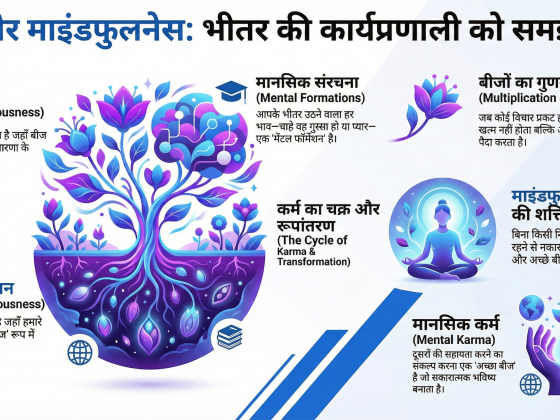Introduction
In recent years, India’s higher education system has undergone a significant transformation under the National Education Policy (NEP) 2020. One of the most talked-about changes is the discontinuation of the M.Phil. program in various fields—particularly Clinical Psychology—and the introduction of a new M.A. Clinical Psychology (RCI-Regulated) course.
This shift has left many students with questions:
- Why was M.Phil. in Clinical Psychology removed?
- How is the new M.A. Clinical Psychology program different (or similar)?
- What are the career prospects in this new system?
In the video below (and this blog post), I address these questions in detail and explain the rationale behind NEP 2020’s major shift.
If you’d like to see my full explanation, including my personal insights and advice, watch the video below:
1. M. Phil. Clinical Psychology – The Old System
- Duration & Accessibility:
M.Phil. in Clinical Psychology was historically the only route to become a clinical psychologist in India. It typically spanned two years but had very few seats nationwide. - Challenges:
- Limited availability, resulting in intense competition.
- Outdated curriculum that didn’t align fully with international standards.
2. NEP 2020 and the Need for Change
- Global Alignment:
NEP 2020 aims to modernize India’s higher education to ensure graduates can meet global standards. - Discontinuation of M.Phil.:
As per NEP 2020, M.Phil. programs across various fields were discontinued. - UGC & NITI Aayog Recommendations:
These bodies suggested creating a new postgraduate program to replace M.Phil. in Clinical Psychology—one that would be more widely available and incorporate modern training and research standards.
3. M.A. Clinical Psychology (RCI-Regulated) – The New System
- Similar Depth & Training:
The M.A. Clinical Psychology (RCI-Regulated) offers similar clinical training, supervision, and research experience as the old M.Phil. - Better Accessibility:
With more colleges/universities expected to offer this program, seat availability should improve compared to M.Phil. - RCI Registration:
Graduates of this program can register with the Rehabilitation Council of India, just like M.Phil. holders, thereby becoming eligible to practice as clinical psychologists.
4. Comparison: M.Phil. vs. M.A. Clinical Psychology
- Course Duration:
- M.Phil.: Typically 2 years.
- M.A. Clinical Psychology (RCI-Regulated): Usually 2 years as well, though some institutions may structure it differently.
- Curriculum:
- M.Phil.: Focused on clinical exposure and research but deemed outdated by some international standards.
- M.A. (RCI-Regulated): Updated curriculum aligned with NEP 2020, offering robust clinical training and research components.
- Recognition & Career Path:
- Both lead to RCI recognition, allowing you to practice as a clinical psychologist.
- In terms of career prospects, both are recognized, but M.A. (RCI-Regulated) is the new standard under NEP 2020.
- Admission Competitiveness:
- M.Phil.: High competition, limited seats.
- M.A. (RCI-Regulated): More seats expected, thus more accessible.
5. Advice for Students & Next Steps
If you’re looking to pursue a career in clinical psychology in India:
- Complete Your Bachelor’s in Psychology (or Equivalent).
Ensure you have the foundational knowledge before applying for an M.A. in Clinical Psychology. - Research Institutions Offering RCI-Recognized M.A. Programs.
Check the RCI website or individual university websites to confirm accreditation. - Prepare for Entrance Exams (If Applicable).
Some universities may still have stringent entrance tests or interviews. - Look for Clinical Exposure & Internship Opportunities.
Practical, hands-on experience is crucial to build your competency as a future psychologist. - Stay Updated on RCI Guidelines.
Regulations may evolve over time, so keep an eye on any changes that might affect your registration or practice.
Conclusion
The discontinuation of M.Phil. in Clinical Psychology and the introduction of M.A. Clinical Psychology (RCI-Regulated) under NEP 2020 is a strategic move designed to increase accessibility, update curricula, and improve India’s alignment with international standards. While the transition may seem daunting, rest assured that the new system aims to maintain the rigor and recognition necessary for a career in clinical psychology—just with a more modern approach.
If you have any questions or concerns about these changes, feel free to leave a comment below or reach out to me directly. I’d be more than happy to guide you through the new landscape of clinical psychology education in India.
Thank you for reading! If you found this post helpful, don’t forget to share it with fellow psychology enthusiasts and subscribe to my YouTube channel for more updates and insights.
Have questions or experiences to share? Drop a comment below—let’s learn together!
Disclaimer: The information provided here is based on available guidelines and the speaker’s personal views at the time of publication. Always verify details with official sources such as the Rehabilitation Council of India (RCI) or the specific universities you plan to apply to.




